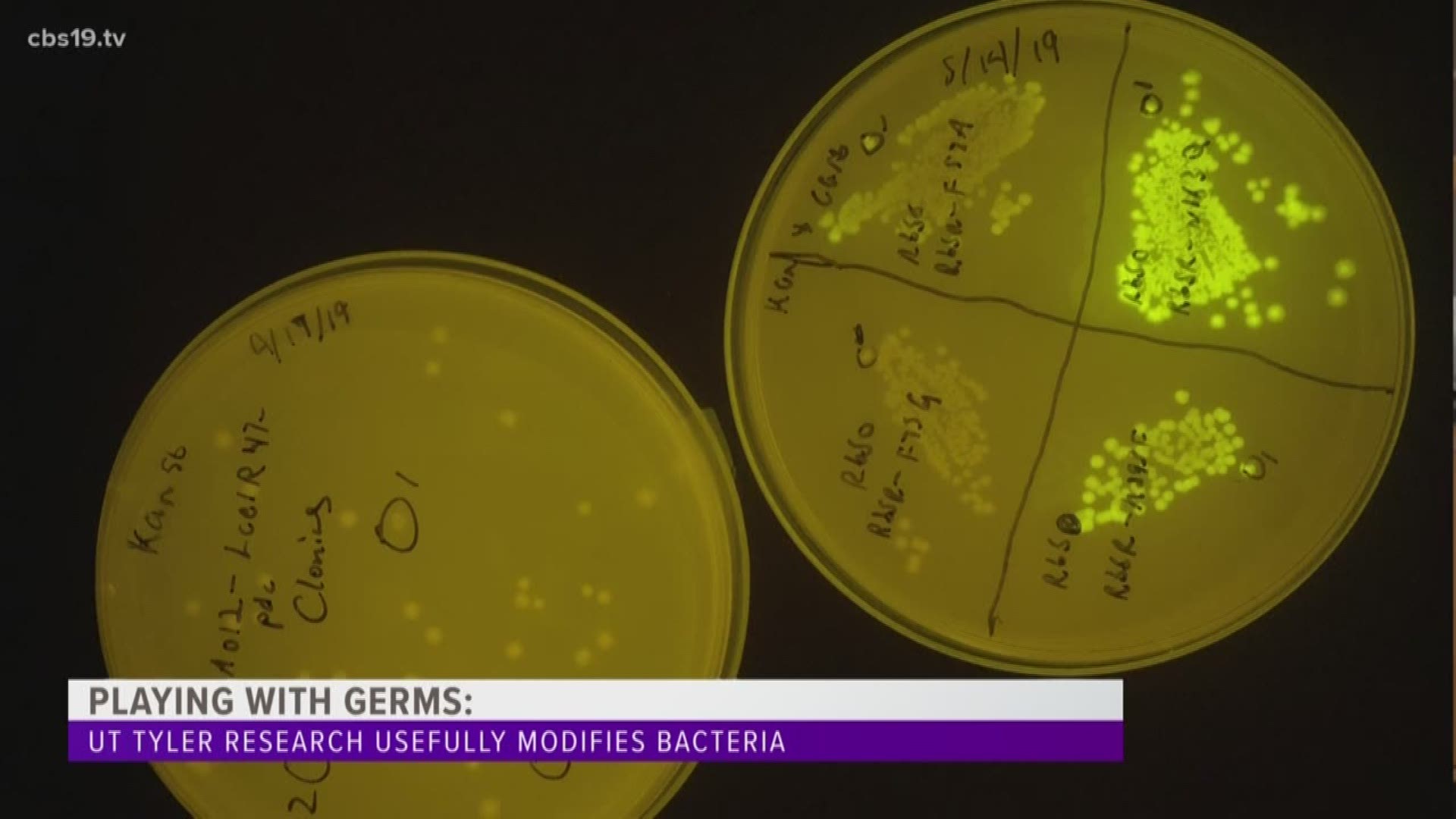TYLER, Texas — Inside the lab of UT Tyler's assistant professor Dr. Clement Chan, you will find a refrigerator that does not contain food, but Petri dishes that hold trillions of bacteria. These microscopic organisms are being used to research biotechnology that is used to protect humans and our environment.
"We can use this bacteria for sensing specific environmental signals so that they can only survive in a very specific environment, such as like in a lab environment, or like in an industrial plant," Chan said.
The concept of Chan’s research is this, genetically engineer bacteria to only survive under certain conditions, and if those conditions change, these bacteria react to eliminate their own threat.
"If they're accidentally being released to the soil or a river because the environmental signals have been changed, then this bacteria would then sense that and then start to perform like a self-destruction process," Chan said.
This would create a somewhat foolproof situation if dangerous bacteria were somehow ingested, or spilled into a nearby waterway.
"You can actually protect, like everyone, but then you can still have a very efficient environment for studying these infectious diseases for developing a cure," Chan said.
In addition to using this modification method as a safety tactic, Chan hopes to use these bacteria to inexpensively diagnose diseases in rural areas.
"You can actually have bacteria living in your digestive system," Chan said. "So let's say this, bacteria can sense there's certain changes in your body, as in symptoms, they can report it to us. Like for example, your pee would change colors, maybe it becomes pink or something like that, which then can tell us the patient is actually having a threat of a certain disease."
While Chan’s work is still in the beginning stages, the National Science Foundation granted him over 400 thousand dollars to continue his research.

